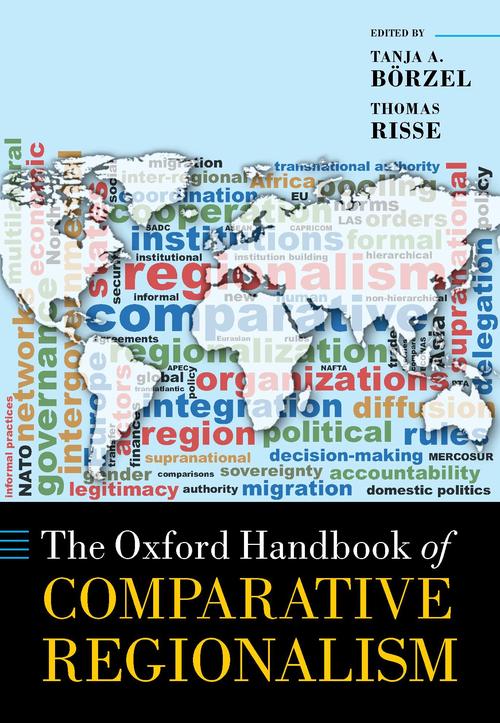The Oxford Handbook of Comparative Regionalism
The Oxford Handbook of Comparative Regionalism
Image Credit: Oxford University Press Link
The KFG is pleased to announce the publication of the “Oxford Handbook of Comparative Regionalism”, co-edited by the KFG directors Tanja A. Börzel and Thomas Risse. For more information please refer to the publisher’s website.
The Handbook offers a unique systematic and comprehensive survey of the scholarship on regionalism, regionalization, and regional governance. In twenty-seven chapters, the authors synthesize the state of the art, provide a guide to the comparative study of regionalism, and identify future avenues of research. Particular attention is devoted to the emergence and effects of regionalism, the institutional design of regional organizations and issue-specific governance regimes, and the relationship between regionalism and regionalization.
Three findings of the Handbook are especially important: First, while the number of regional organizations did not sharply rise since the end of the Cold War, the editors argue that particularly multi-purpose ROs were since bestowed with new tasks and have further moved towards (deeper) regional integration. Second, existing theories of cooperation and integration provide plausible accounts for the emergence of regionalism, whereas diffusion and normative emulation of what regional actors and states consider appropriate offer more convincing accounts with regard to institutional designs. Third, regionalism seems to have positive consequences for peace and security and domestic “regime-boosting” effects, both by locking in democratic reforms and by stabilizing autocratic rules.
You can order the book online here.
"The Oxford Handbook of Comparative Regionalism"
Edited by Tanja A. Börzel and Thomas Risse
704 Pages
£95.00
